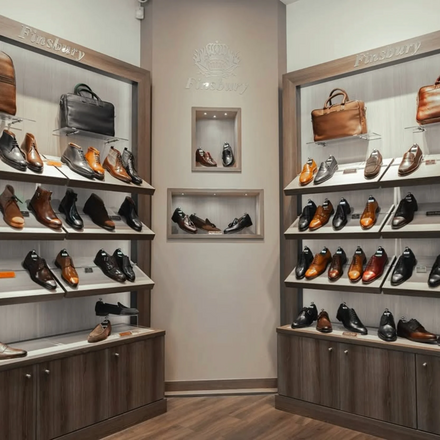Toy store

The toy industry in Europe offers franchising opportunities for entrepreneurs interested in retail. Learn about investment requirements, leading brands, and support provided.
The European toy industry continues to develop, driven by a consistent demand for children’s products, including educational, traditional, and modern toys. Franchising in this sector allows business owners to benefit from established brand recognition and operational support. Popular toy store franchises provide structured business models and assistance with launching and managing stores, ensuring compliance with brand standards.
Leading toy store franchises
Prominent brands offering franchise opportunities in Europe include Toys “R” Us, Toy Planet, and Hamleys. Each of these companies operates on a franchising model designed to support new business owners with established systems and access to supply chains.
Toys “R” Us operates stores in multiple European countries and provides franchising options in selected regions. The required investment ranges from €300,000 to €600,000, including a franchise fee of approximately €50,000, inventory, and store setup costs. Stores are typically located in urban areas or shopping centers to attract consistent foot traffic.
Toy Planet, originating in Spain, has expanded its franchise model across Europe. The investment needed for a Toy Planet franchise ranges from €150,000 to €250,000, with a franchise fee of around €20,000. The business model focuses on affordability, offering a wide variety of products to meet diverse customer needs.
Hamleys, a well-known brand in the premium toy segment, offers franchises in several European countries. Opening a Hamleys store requires an investment of €500,000 to €1 million, depending on store size and location. The brand emphasizes the creation of experiential retail spaces that attract families and children.
Financial requirements
Launching a toy store franchise involves several costs, including the franchise fee, store setup, and inventory. Franchise fees for toy store brands range from €20,000 to €50,000, depending on the brand and market presence. Additional costs for store design, shelving, and initial marketing campaigns vary by location, with premium brands typically requiring higher investments.
Ongoing costs include royalty fees, usually 5% to 10% of monthly revenue, and contributions to marketing funds. These costs support national advertising campaigns and continuous brand development. Entrepreneurs are advised to allocate working capital for covering operational expenses, such as rent and salaries, during the first months of operation.
Steps to open a toy store
The process begins with selecting a suitable brand and conducting market research to identify demand for children’s products in a specific area. After choosing a franchise, an application must be submitted to the franchisor, including details about financial resources and potential store locations.
Franchisees are required to meet the franchisor’s criteria, which may involve interviews and an evaluation of business plans. Upon approval, the franchisor assists with location selection, lease negotiations, and store design to align with brand guidelines.
Training programs are provided for franchisees and their teams, covering inventory management, customer service, and operational procedures. Franchisors also offer tools for tracking sales and managing stock levels, ensuring efficiency from the outset.
Franchisor support
Franchisors provide a range of services to support new business owners. These include access to supply chains, ensuring stores are stocked with seasonal and popular products. Brands like Toys “R” Us use data analytics to help franchisees optimize inventory and respond to consumer trends.
Marketing support is a key component of franchise agreements. Franchisors manage national and regional advertising campaigns, which benefit all franchise locations. Individual store promotions are often coordinated with these larger efforts to maintain consistency.
Operational assistance includes regular training sessions, site visits, and ongoing consultation. Brands like Hamleys focus on creating engaging in-store experiences, providing guidelines and resources to franchisees to enhance customer satisfaction.
The toy store sector in Europe relies on consistent demand for children’s products, with seasonal peaks during holidays. Franchise models reduce the risks of entering this competitive market by providing established branding and operational systems. Franchisees gain access to proven methods for inventory management, marketing, and customer engagement, increasing the likelihood of success.
Featured franchises
No featured franchises
Other concepts from sector consumer services
Breaking news
Show all
Expanding premium footwear through franchising
A French footwear brand expanding through franchising, offering structured entry into premium shoe retail with established operational standards.

Franchise model in sustainable water solutions
An international franchise network focusing on water generation and distribution technologies designed for commercial and residential markets.

Milano Cosmetics franchise overview
Milano Cosmetics offers a global franchise model for professional beauty salons with defined financial terms, operational support, and...

REFAN franchise network
REFAN is a European cosmetics and perfume manufacturer offering a standardized franchise model based on private-label production and retail.



